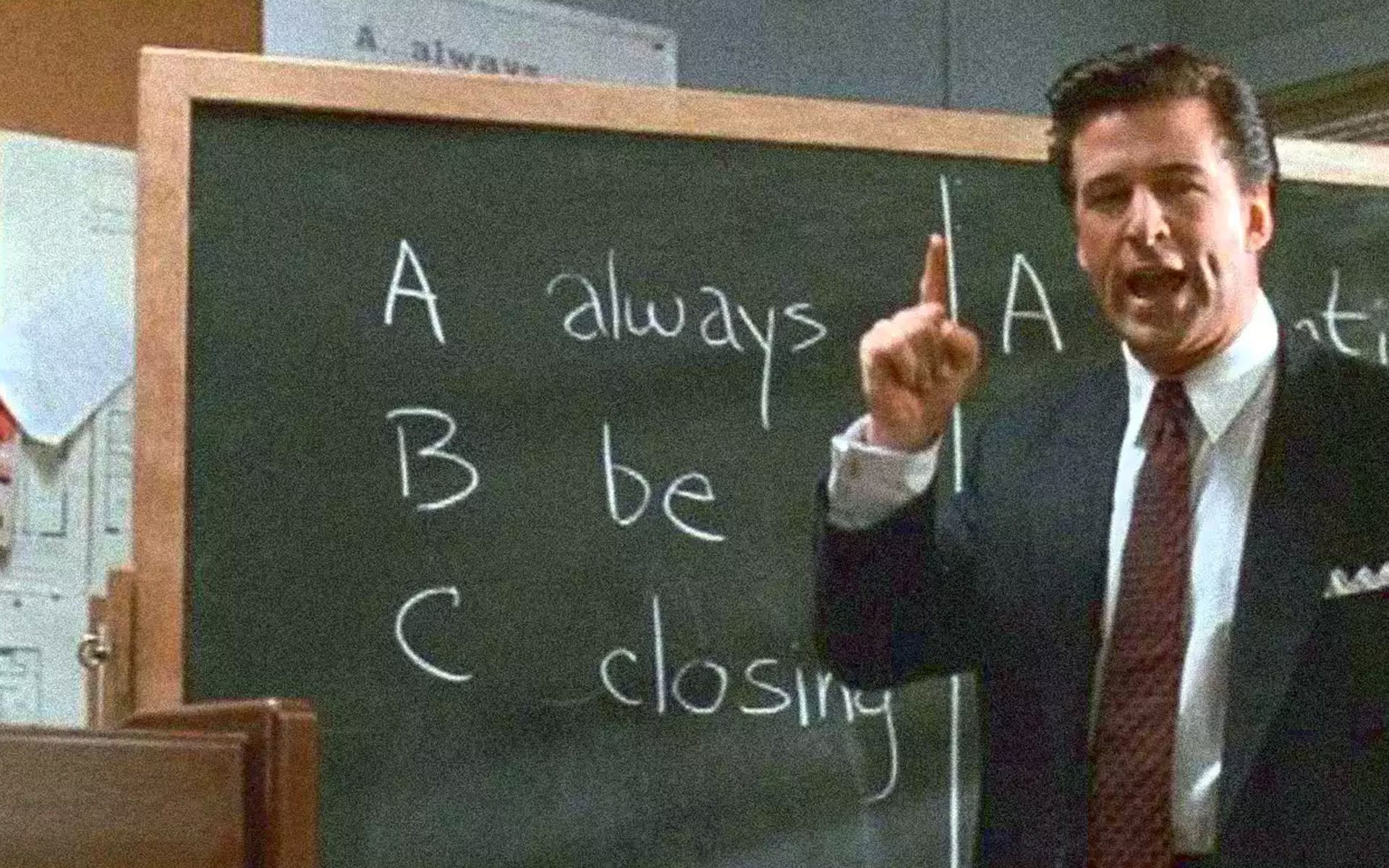Sales Psychology: Unlocking Principles to Grow Your Business
In the world of sales, the formula for success is often 20% strategy and 80% sales psychology. Yes, you read that right: sales psychology is usually the single biggest factor in whether you make or lose a sale.
The fact is, you're not selling to robots — you're selling to human beings with unique desires, motivations, and concerns. If you want to persuade others to do business with you, you have to get inside their head and understand what really makes them tick. (Sometimes you may even need to analyze yourself, and see if your own insecurities are the biggest obstacle to growth!)
It's true that selling is an art — but it's also a science. Fortunately, we've made a lot of progress in understanding how psychology fits into successful business and sales. Let's talk about 5 sales psychology principles that can really kick your sales process into overdrive.
5 Sales Psychology Principles to Grow Your Business
1. The "Liking Principle"
This is a simple but powerful truth, both in business and in life. People are more likely to do what you want if they like you. Psychologist Robert Cialdini called this the "liking principle." It's simple, but it makes a lot of sense — and can have a huge impact on your sales. In fact, all the logic and persuasive arguments in the world may not have the same effect as a good rapport with the prospect.
The question is: How can you get your prospects to like you, personally? The first step is to simply show personal interest in them. Do you like it when someone shows appropriate interest in your work, background, hobbies, and so forth? It makes you feel good, doesn't it? The same is true with your prospects. Always look for ways to show personal interest in them, instead of treating them like potential dollar signs.
In the same vein, try to find common ground with your prospect as quickly as possible. Cialdini mentioned this as an oft-overlooked technique, but one that can immediately create a level of shared trust. The commonality doesn't have to be extremely meaningful or profound; maybe you both grew up in the same state, or enjoy the same kind of sports. However, finding that common ground can greatly increase your chances of being liked.
2. Reciprocity
Regardless of nationality, culture, or background, most humans tend to have a strong sense of fair play. If a person does something nice for you, you'd naturally feel grateful — and you'd be more willing to do something nice in return.
In the context of sales psychology, this principle is known as reciprocity. People are more likely to help you (or to buy from you) if they feel like they owe you for something you did in the past.
Of course, if you want to leverage reciprocity into more sales, then you first of all need to be helpful to your consumer base in general. This helpfulness could take many forms — offering free products as part of a promotion, going above and beyond with a customer service issue, providing valuable content without cost, etc.
But here's the key point to remember: When your prospect/customer expresses gratitude, don't wave it away! Instead of responding with "Oh, it was nothing," say something to the effect of "Of course, that's what partners do for each other."
Frame your act of helpfulness as an act of partnership. This will motivate the prospect to return the favor, either now or at some point in the future.

3. Resistance to Change
People generally don't like change. That's no big secret. Most consumers live by the old adage: "If it ain't broke, don't fix it."
Of course, when you're selling to a new customer, you're actively fighting against that ingrained disposition. You want them to make a change — specifically, to make a purchase with your company. So how can you overcome that resistance?
In many cases, people fear change. Yes, they fear the unknown; but they also fear losing what they already have. However, you can flip that narrative on its head by focusing on what the prospect will lose if he or she doesn't change. In fact, Nobel Prize winner Daniel Kahneman conducted research that indicates we fear loss twice as much as we relish success. The point is, fear of loss is a much more powerful motivator than notions of gain when it comes to a contemplated change.
In the sales world, this is often manifested in FOMO (fear of missing out). When you plant the idea in a prospect's head that they're going to lose out on a great deal, a helpful service, or a unique experience, then they'll be much more likely to take the leap, and close the sale. Leveraging FOMO can help the customer to overcome that initial resistance to change that's inside all of us.
4. Fear of Rejection
This sales psychology principle, as well as the next one, isn't focused on the prospect so much. Instead, they highlight psychological obstacles that you and your sales team may need to overcome in order to successfully grow your business.
For many salespeople, fear of rejection is their number #1 performance roadblock. A lot of reps will break out into a cold sweat when it's time to cold-call a prospect, or follow up on a lead. Why? It's not because they don't know how to use the phone, or what to say in a meeting. They simply don't want to deal with the pain of rejection. Even when the prospect is actually rejecting the company, and they're only standing in as a representative.
This is totally understandable. Research clearly shows that rejection hurts. It triggers emotional pain. In fact, according to one 2010 study, rejection can be so painful and stress-inducing that taking painkillers (usually reserved for physical ailments) can actually reduce the effects of the rejection. (Note: We are not recommending that you load up on painkillers after a bad sales call!)
The point is, emotional pain is a natural response to rejection. And just as we keep our hands away from a hot stove because we don't want to be burned, many sales reps shy away from cold calls and other interactions because they don't want to experience that pain again.
The question now becomes: How can you overcome that fear of rejection, and unlock your potential as a salesperson?
Here are 4 practical steps that can help:
- Identify your triggers. Be mindful of the people, situations, and specific requests that you tend to avoid. What specific elements are driving your fear? Which "No" are you afraid to hear?
- Develop a plan of action. Once you've identified your triggers, think of ways to overcome your fear. Write down a plan of action. You can include reasons why you need to overcome your fear of rejection; specific goals you want to achieve, and the steps you plan to take; and a deadline that will spur you on. Instead of thinking along the lines of "never try, never fail," work to embrace the thought that "the worst they can do is say no."
- Focus on what you can control, not what you can't. The reality is, no matter how hard you try, you can't control how your prospect responds to your pitch. All the logic and persuasiveness in the world isn't enough for some people — and that's okay. Focus on the process instead of the results. When you are focused on the things you can control instead of the things you can't, you'll be more likely to approach each sales interaction with a positive attitude.
- Reframe rejection as education. Instead of viewing rejection as synonymous with failure, consider it a learning opportunity. For example: Maybe the customer wasn't interested because the timing was off. Maybe you missed a good line of reasoning during the course of the conversation. Maybe you needed to prepare more thoroughly. Whatever the case may be, don't beat yourself up over it; identify those weak points, and keep working on them. And remember that rejection isn't necessarily a reflection of who you are — it has more to do with what you said or did, and how you can say or do it differently next time.
5. Empathetic Listening
This last sales psychology principle is all about how you approach the prospect. Many sales reps have a single objective in mind: Close the sale, close the sale, close the sale. Each interaction with a prospect revolves around that goal.
However, there is a more effective goal that you should keep in mind: namely, Listen to understand. In this world, people get "talked at" all the time: by their boss, their colleagues, their friends, even their family members. Very few people are willing to actively listen. But if you can position yourself as someone who genuinely understands where your prospect is coming from, you'll be much more likely to close the sale in the end.
Chris Voss, a former FBI negotiator, once said that during any negotiation you want to arrive at "that's right." When your negotiating partner (in the context of sales, that would be your prospect or lead) says to you "that's right," it shows that they believe you understand their perspective. And once they believe that, they are less likely to resist any proposal you make.
The bottom line? You must listen to understand. Ask sincere questions, take note of the answers, and rephrase those answers in your own words. People have a deep psychological need to be listened to — and when they sense that you truly are listening, they'll reward you accordingly.
If you'd like to learn more about how to leverage sales psychology to grow your business, check out the training we'll provide through our upcoming Deal Flow Accelerator program. And feel free to explore the resources we offer and reach out to us with any questions you may have — we'd be happy to help!
You May Also Like
These Related Articles

Here's Why Top B2B Sales Leaders NEVER Get Prospect Ghosted

Sales Training Program: How to Choose the Best B2B Training





